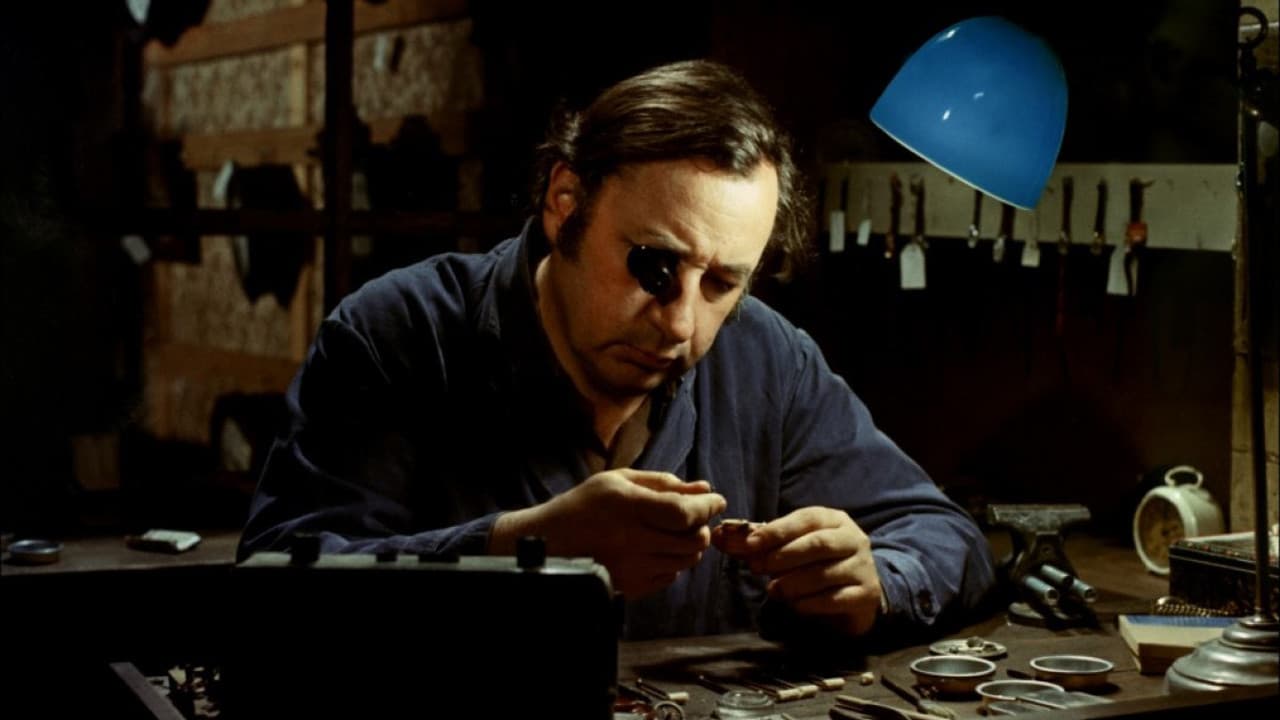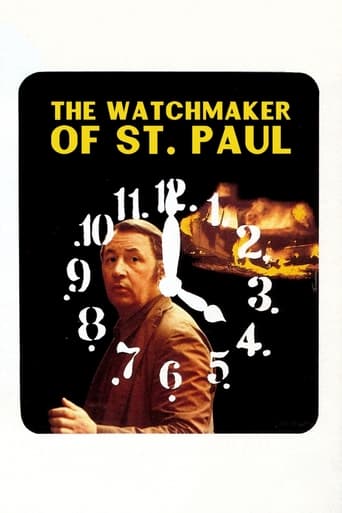

That was an excellent one.
... View MoreLack of good storyline.
... View MoreGood start, but then it gets ruined
... View MoreAbsolutely brilliant
... View MoreI did not love this movie, but it was better than average--particularly because of its originality. However, to an American audience, it may be difficult to relate to the French justice system circa 1974. At first, the star of the movie, Philippe Noiret, is a rather apolitical man who seems quite ordinary. When the police inform them that his son has murdered someone, he initially does pretty much what the police ask. When the investigating officer tries to get close to Philippe (sort of "buddy buddy"-like), he allows him. However, through the course of the film, Philippe begins to see the police as the enemy and he rebuffs these attempts by the police to be friendly. The problem for me is WHO is right? Were the police at this point of time quick to violate human rights or manipulate the families of the accused? I really didn't know if Philippe was having his eyes opened to the truth or if he just learned to identify with and excuse evil. This would NOT pose a problem to a French audience but for those not familiar with the French legal system it seemed confusing--was Philippe a good man or a good man going bad? As far as the acting and pacing is concerned, this is a good flick.
... View MoreTavernier's treatment of Simenon takes us back to the veterans time,all those who made great adaptations just before the nouvelle vague and even during its heyday:"la mort de Belle" ,Edouard Molinaro's most perfect flick was made in 1963,at about the same time as François Truffault's "la peau douce",whose Simenon adaptation would be forgotten if it were not Truffault .Molinaro's "la mort de Belle" and Henry Decoin's "les inconnus dans la maison"have a lot in common with "l'horloger de Saint-Paul;all these works deal with incommunicability,between people of the same family.For instance,in "les inconnus dans la maison" ,a fallen alcoholic lawyer does not care about his daughter anymore and one day very bad things happen;in "la mort de Belle" a high school teacher sees his life torn apart when he's a suspect when a young girl dies and even his wife who thinks she knows him well has her doubts .Tavernier's first movie was not that much innovative -as works to come would be- as derivative.However ,it's a very commendable work,because of Philippe Noiret's sensational portrayal of a peaceful man ,who is confronted with tragedy when his son kills a b.... .Tavernier's science of pacing a movie already shines:the son only appears in the last quarter of the movie and during at least 15 minutes,the only words he says to dad are "bonjour papa" ;little by little,we feel that father and son stand together ,but they do not try to strike back ,to find alibis ,to avoid the punishment.In a grand gesture,Tavernier does not even film the trial!A terse comment lets us know about the sentence.The characters -the father ,the son and even the girlfriend (Christine Pascal)the b... raped - remain opaque,their motives remain obscure Liliane ,the son's lover has not a single line to say.We will never know why the son and the father were estranged -the scene with the boy's old nanny remains vague.During the last scenes looks matter more than words and when they start talking again,the son concludes: -and what a place(a noisy visiting room) for the first conversation in years!- "we can hear ourselves if we really want to!" Unlike Tavernier's follow-up "le juge et l'assassin" which was Tavernier's first perfect work,"l'horloger de Saint-Paul' does not avoid some post-68 clichés that were poisoning the French cinema of the seventies:the bedroom full of "revolutionary " posters,the bad cops-the conversation with detective Jean Rochefort in the train- ,the all-things -political which the hero fortunately refuse .It's minor quibble.Considering all the important movies Tavernier would produce in the wake of 'l'horloger" ,it's almost even irrelevant.No other director has shown so many qualities in the last thirty years.
... View MoreThis film is a brilliant portrayal of a man caught between his private memories of a fugitive son and the political interpretations of his son's actions. There is a constant interplay between Michel Descombes's private existence, individualized profession (as an artisan, he is necessarily the opposite of a mass producer), and the public spectacle that his son has become. It is truly a fascinating commentary on subversion and freedom, wonderfully played by Noiret and other greats, that provides incredible emotional depth.
... View MoreThe star of this film is the city of Lyons, which looks absolutely magnificent. The problem with the film is that it rambles along until the son is finally captured and tried, and is reconciled with his father. The father doesn't seem to know what's going on at the start or how he feels about his son, before eventually deciding that he wants him to escape. But the film just seems to drift from one encounter to another, with the policeman, with his friend, with the press, with his son's girlfriend's workmates, with the woman who helped bring his son up. Perhaps the director is trying to show what it's like to be waiting for news in such a situation and the sense of not being able to do anything about it. Philippe Noiret and Jean Rochefort are both excellent in portraying sympathetic characters. The son and girlfriend are also portrayed as sympathetic - although we are never explicitly told why they committed the murder, their victim is shown to have been a nasty piece of work. The almost documentary style is in contrast to the cinematic style of other Simenon adaptations such as "Monsieur Hire" and "The Hatter's Ghost". No intrusive music as in "Monsieur Hire" for example.
... View More